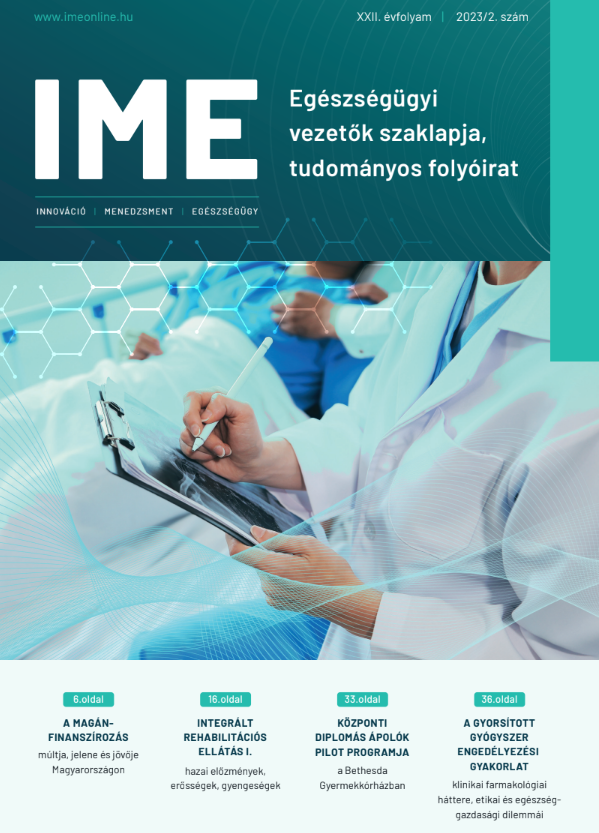Reorganization of the process and education of resuscitation at the Szent Imre University Teaching Hospital of South Buda Central Hospi
Abstract
The Szent Imre University Teaching Hospital of South Buda Central Hospital has been operating an Emergency Care Service, which is equivalent to the Medical Emergency Team, for almost 20 years. According to international studies, hospital resuscitation is most successful when it is carried out by a team of experienced and cohesive people. In our hospital, resuscitations are performed by the Emergency Department, which has the dedicated task of organising regular, extended basic life support (EBLS) training for the staff.
Our aim is to present the renewal of the procedures of advanced resuscitation in line with the current professional and management knowledge, as well as the reorganisation and re-launch of the EBLS training.
We used the guidelines of the European Resuscitation Council as a professional reference, while the educational and organisational aspects were based on the recommendations for application of these guidelines together with the national general and institutional good practices. The reorganisation of education was defined by the following basic requirements: all hospital staff, both doctors and nurses, in all departments should receive at least one resuscitation training session per year. A training plan and curriculum were developed, then small-group training sessions with theoretical and practical elements, complex situations, and an assessment were conducted. Participants evaluated the training by an anonymous, 9-item questionnaire at the end of the training.
Our institutional procedures were updated according to the professional guidelines. Thus, the alarm telephone number was posted on all nurses’ desks, and the list of resuscitation equipment for departments was compiled, checked, and completed. Our training has been conducted 18 times so far for 183 colleagues. The training sessions proved necessary, and participants evaluated it positively regarding content, trainers, and organisation.
In the future, in addition to the continuation of the regular training sessions, we are planning to launch new training courses, the digital renewal of the resuscitation documentation, and join the international resuscitation register.

This work is licensed under a Creative Commons Attribution-NonCommercial-NoDerivatives 4.0 International License.




